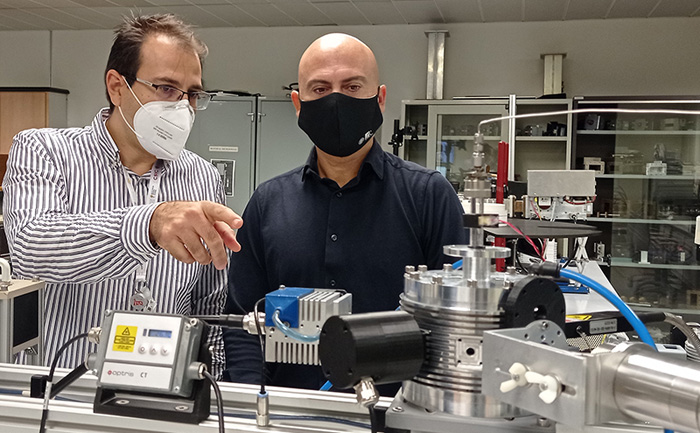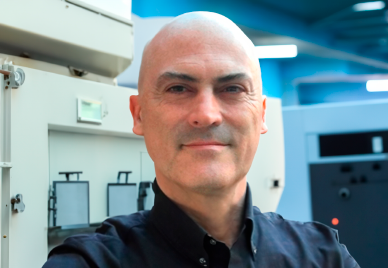The MERIT project aims to develop innovative technology for producing green hydrogen from water and renewable energies by harnessing microwave acceleration of reduction-oxidation (redox) reactions in solid-state ionic materials (SSIM) at unprecedented temperatures (≈ 400 °C).

This novel electrochemical water dissociation route, which only yields O2 as a byproduct, represents a promising opportunity for sustainable and carbon-free H2 production, with estimated low energy costs and high efficiency.
The use of low temperatures in microwave water splitting alleviates the drawbacks of more modern technologies, particularly solar thermochemical splitting (TWS), and enables much higher energy efficiencies, i.e., lower energy costs.
Furthermore, the non-contact nature of microwave applications facilitates system modularity, allowing its integration into a wide range of applications. Unlike conventional electrolyzers, which are limited by electrode surface area, the microwave-activated H2 formation reaction occurs throughout a volume, specifically in the fixed bed of solid material. This will facilitate the engineering and development of scalable microwave reactor technology.

This study forms part of the Advanced Materials programme and was supported by MCIN with funding from European Union NextGenerationEU (PRTR-C17.I1) and by Generalitat Valenciana



